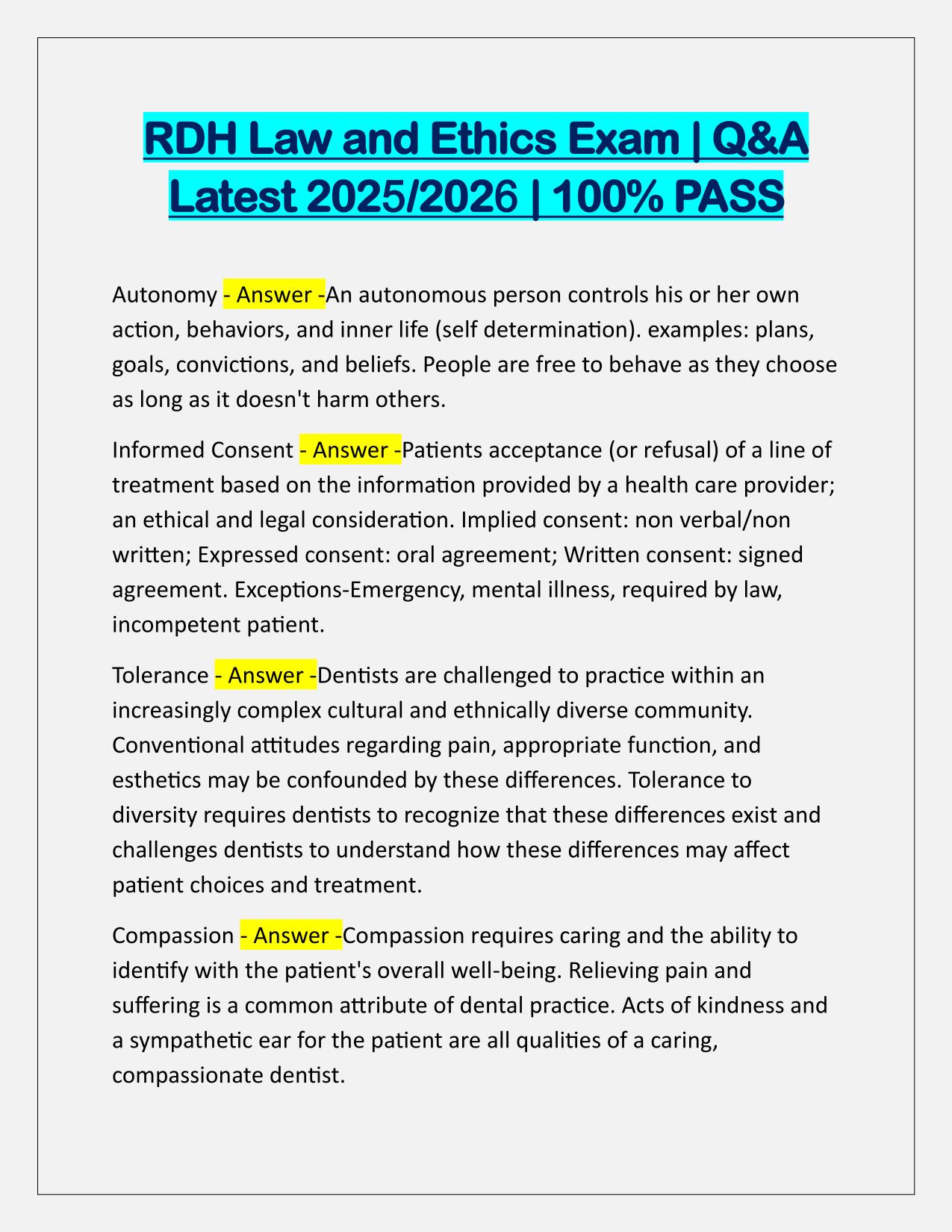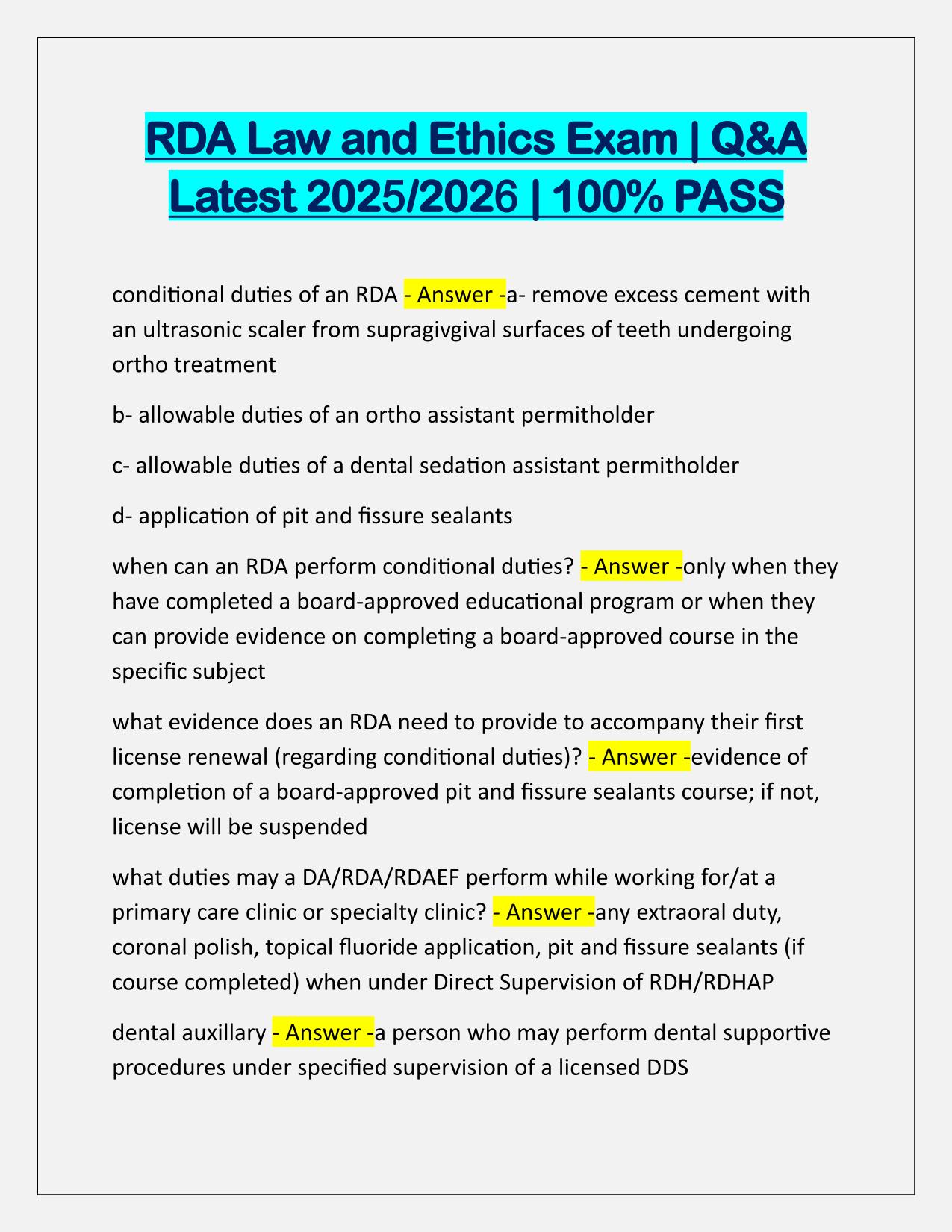RDH Law and Ethics Exam Q&A Latest Update
Course:
RDA
Institution:
RDA
RDH Law and Ethics Exam Q&A Latest Update
After purchase, you get:
✅ Instant PDF Download
✅ Verified answer explanations
✅ Refund if not Satisfied
✅ Prepared for 2025/2026 test cycle
Document Information
| Uploaded on: | May 13, 2025 |
| Last updated: | May 13, 2025 |
| Number of pages: | 4 |
| Written in: | 2025/2026 |
| Type: | Exam (elaborations) |
| Contains: | Questions & Answers |
| Tags: | RDH Law and Ethics Exam Q&A Latest Update |
Seller Information

AdelineJean
User Reviews (0)
Exam (Elaborations)
$7.50
Bundle Deal! Get all 14 docs for just $13.00
Add to Cart
100% satisfaction guarantee
Refund Upon dissatisfaction
Immediately available after purchase
Available in Both online and PDF
$7.50
| 0 sold
Related Documents
Available in a Bundle
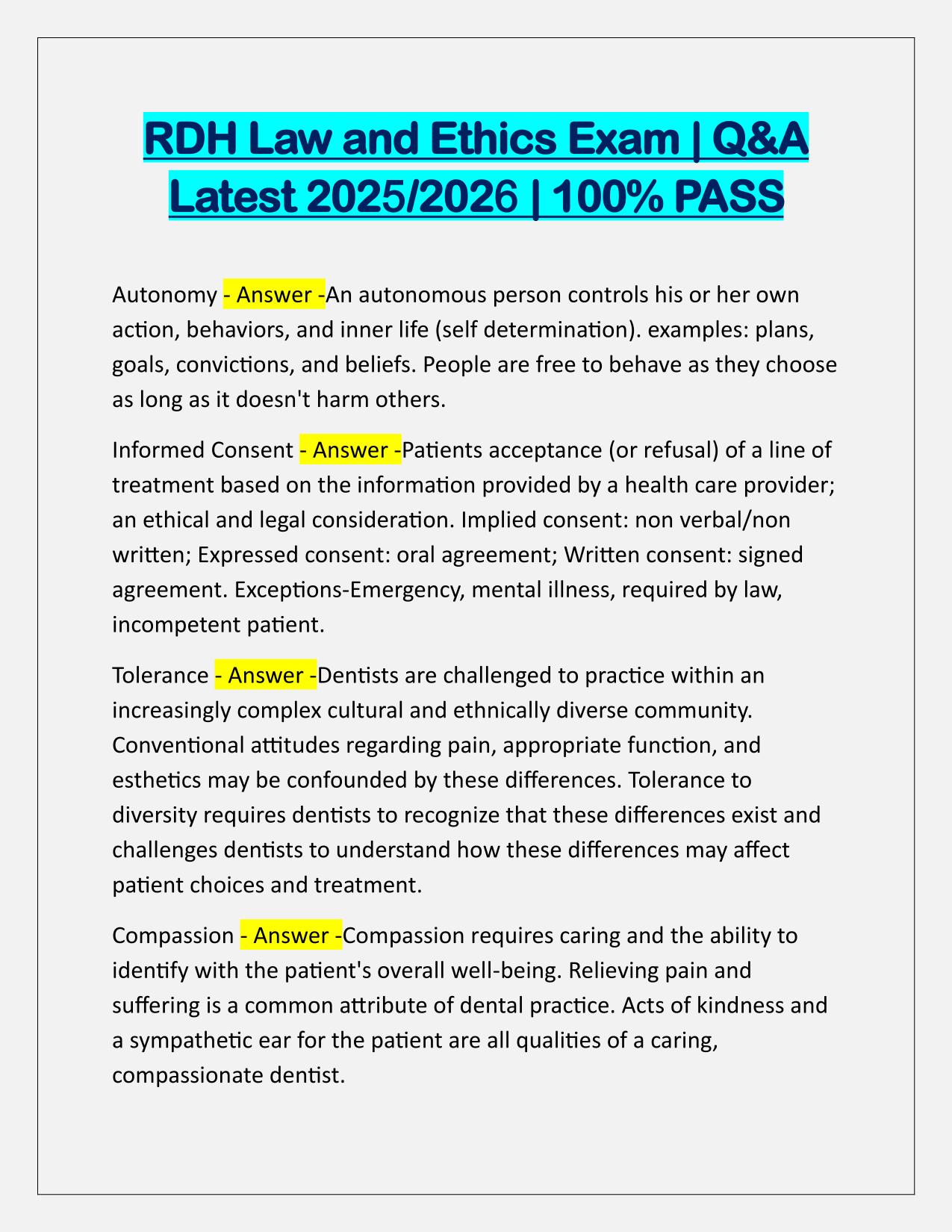
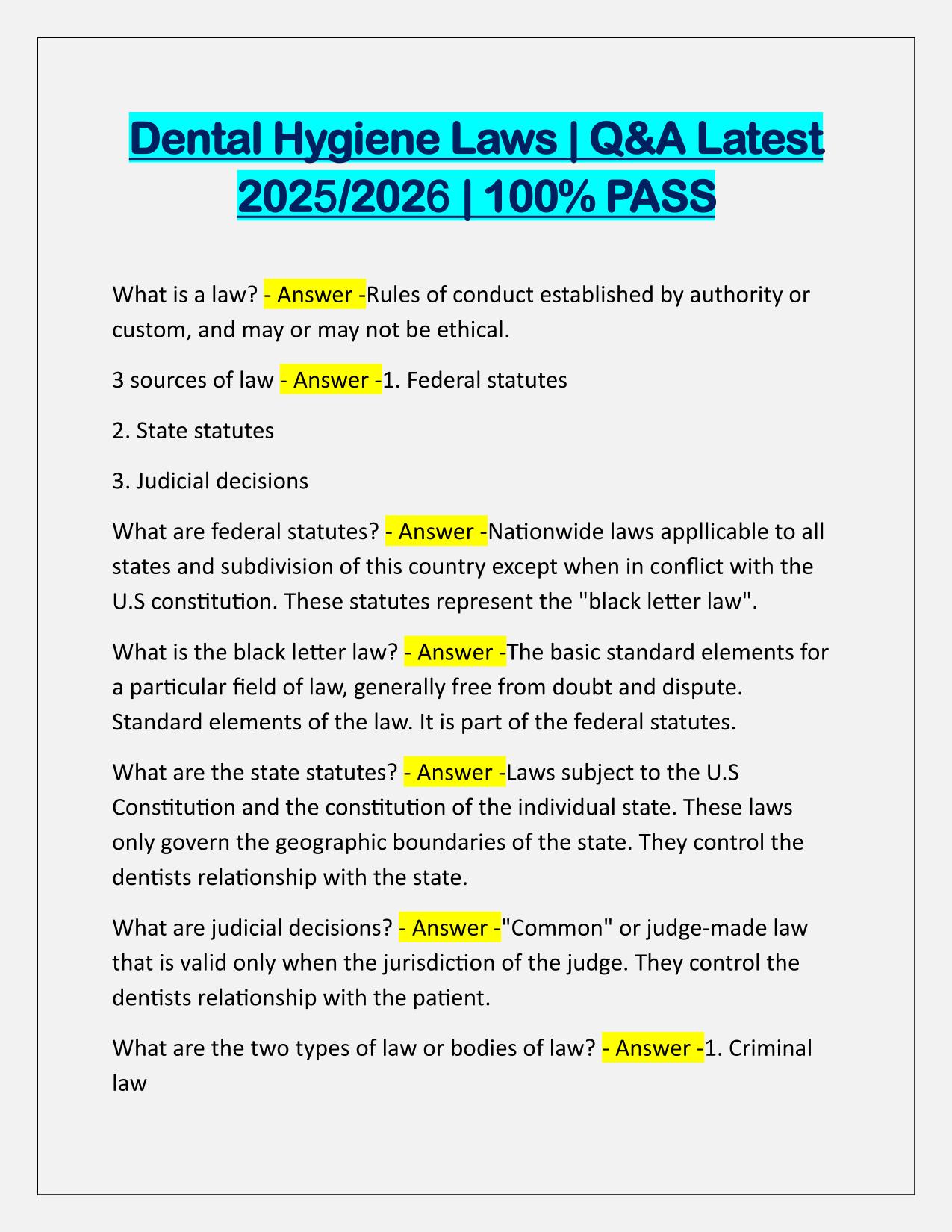
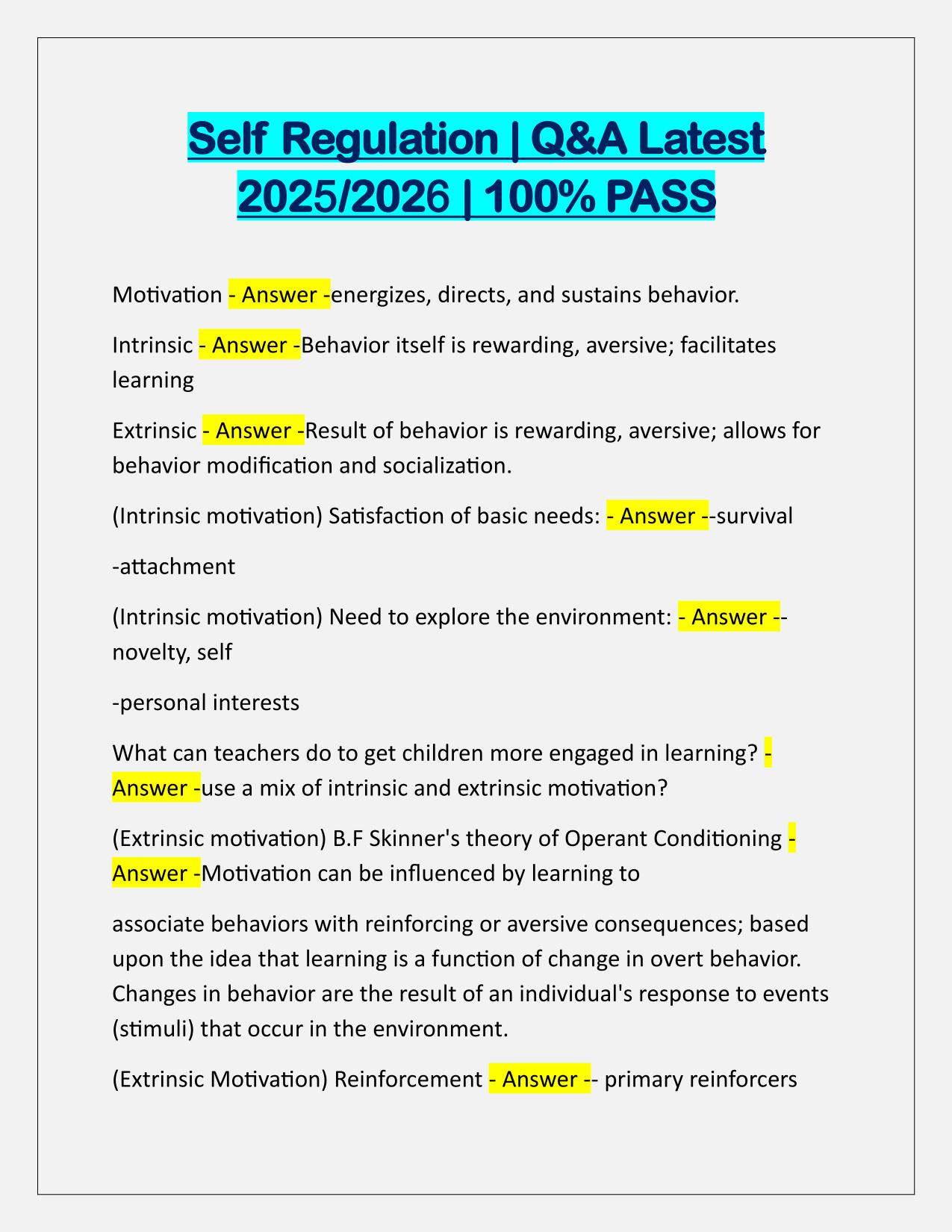
Bundle for RDA-Registered Dental Hygienist in Alternative Practice, RDHAP EXAMS Q&A Latest Update
Includes 14 Documents
$13.00
Content Preview
RDH Law and Ethics Exam | Q&A Latest 2025/2026 | 100% PASS Autonomy - Answer -An autonomous person controls his or her own action, behaviors, and inner life (self determination). examples: plans, goals, convictions, and beliefs. People are free to behave as they choose as long as it doesn't harm others. Informed Consent - Answer -Patients acceptance (or refusal) of a line of treatment based on the information provided by a health care provider; an ethical and legal consideration. Implied consent: non verbal/non written; Expressed consent: oral agreement; Written consent: signed agreement. Exceptions-Emergency, mental illness, required by law, incompetent patient. Tolerance - Answer -Dentists are challenged to practice within an increasingly complex cultural and ethnically diverse community. Conventional attitudes regarding pain, appropriate function, and esthetics may be confounded by these differences. Tolerance to diversity requires dentists to recognize that these differences exist and challenges dentists to understand how these differences may affect patient choices and treatment. Compassion - Answer -Compassion requires caring and the ability to identify with the patient's overall well-being. Relieving pain and suffering is a common attribute of dental practice. Acts of kindness and a sympathetic ear for the patient are all qualities of a caring, compassionate dentist.
